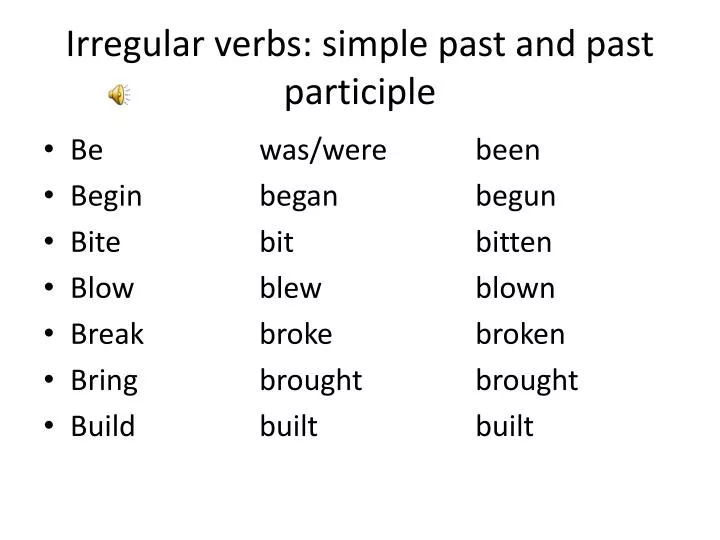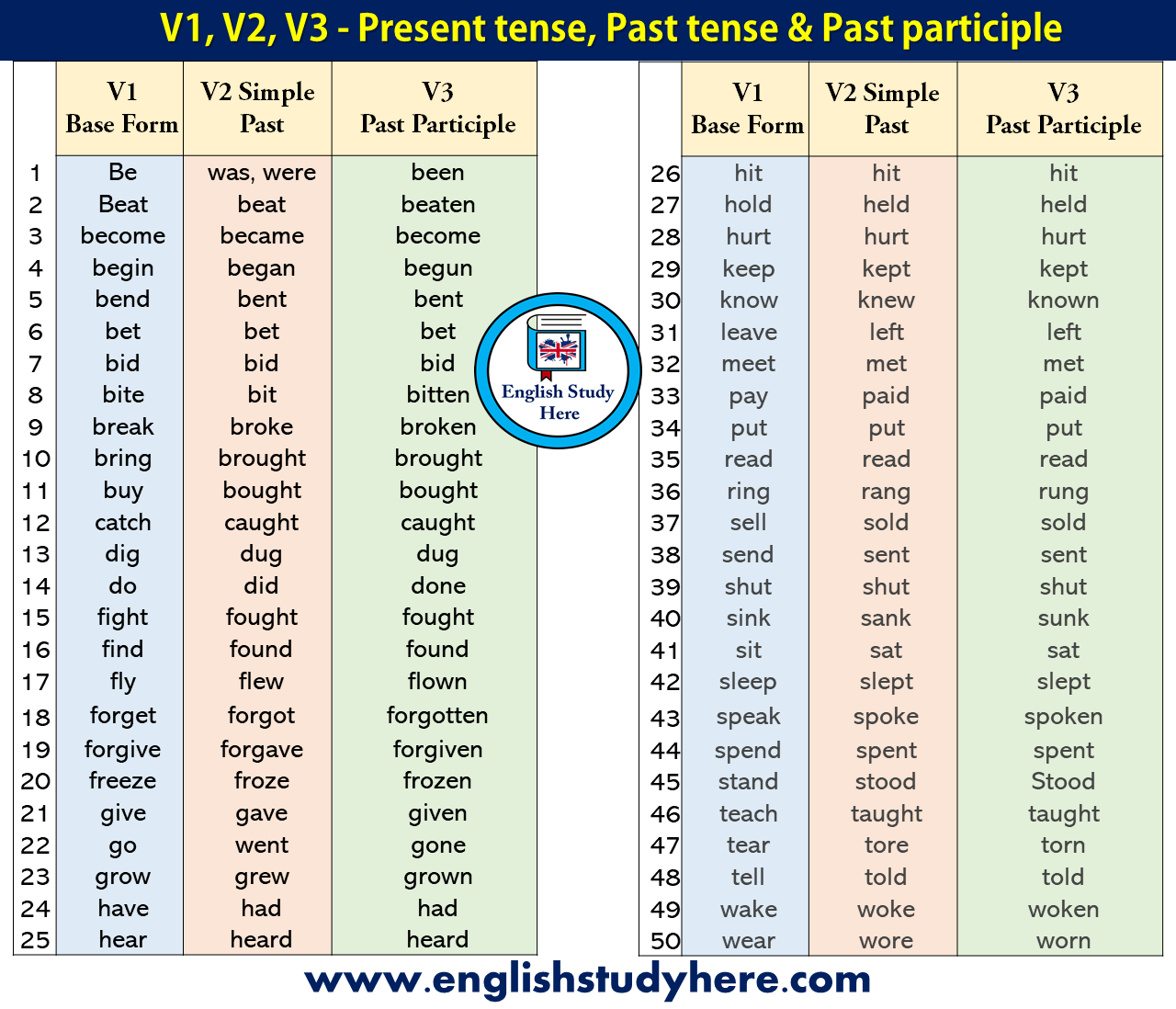
Dear Aurélien Emer Began is the simple past tense of to begin The present tense of to begin is begins third person singular. Begun is not a finite verb.

The past participle is not a tense.
Past tense and past participle of begin. Past Perfect Continuous Tense. HeSheIt had been beginning. I had been beginning.
YouWeThey had been beginning. Various Skills of the English language. English Listening English Speaking English Reading English Writing.
Components of the English language English Grammar. English Alphabets WordsParts of Speech. The past tense of begin is began.
The third-person singular simple present indicative form of begin is begins. The present participle of begin is beginning. The past participle of begin is begun.
They prised the doors open when the lift began filling with water from the sprinkler system. So begin is the present tense form of the verb and began is the simple past tense of the verb. And begun is the past participle used in the perfect tenses.
What is a perfect tense. Dear M Anonymous Begun is the past participle of to begin. Its past tense is began.
The participle must come after an auxiliary verb eg have begun or had begun or has begun. The present tense of to begin is begins third person singular. He begins or begin everything else.
I begin you begin we begin they begin. Began is the simple past tense form of begin which means to start. It all began one day about ten years ago.
Begun is the past participle form of begin. We cant stop this process once it has begun. Now lets look at the specific ways to use these conjugations of begin as well as how to avoid common mistakes.
Using Began in a Sentence. When to use began. Began is the simple past.
Basically the past tense is a tense while the past participle is a specific verb form used in the past and present perfect tenses. The past participle is not a tense. Its a form of a verb and cant be used on its own.
You need an auxiliary verb such as have or had Because of this the past participle is commonly used as a compound verb. Lets take a look at two words in the past tense and then the past participle. I lived in the United States for seven years.
Dozens and dozens of English verbs have irregular past tense forms as well as irregular past participles. If you are studying English grammar you may want to memorize the common irregular past and past participles listed here. This list is not exhaustive by any means but these are common verbs English speakers use every day.
Past Tense Of Hit Past Participle Form of Hit Hit V1 V2 V3 Past Tense of Hit In English the verb hit is used quite a lot and often. It is used as hits with he she and it and as hits with other subjects. We use the auxiliary verb dont when making this verb negative.
It is used as doesnt hit with he she and it and dont hit with other subjects. Began is a finite verb the past tense of begin. Begun is not a finite verb.
It is a past participle acting as an adjective and so it has no subject. It modifies the Tower of London. Tchrist May 19 14 at 454.
In addition to forming verb tenses the past participle can form two other things. One is the passive voice and the other is adjectives. On todays program I will talk about all three of these.
An irregular verb is one that does not conform to the usual rule for forming its simple past tense and its past participle. An irregular verb is not the same as a weak verb although some irregular verbs are weak verbs. This page contains a list of common irregular verbs in English and an interactive exercise.
Dear Aurélien Emer Began is the simple past tense of to begin The present tense of to begin is begins third person singular. He begins or begin everything else. I begin you begin we begin they begin.
A full paradigm is included. Past Simple V2 Past Participle V3 arise.